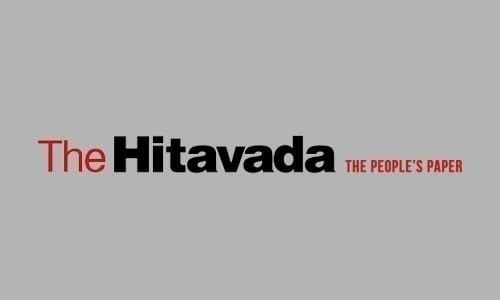Abolish Nuclear Weapons
02 Jun 2023 11:01:50

By Dr Arun Mitra
MUCH was expected from the recently concluded summit of group of seven countries the G7 which included USA, UK, France, Canada, Italy, Germany and Japan. Since the world is faced with serious threat of use of nuclear weapons during the on-going Russia Ukraine war, there was a feeling that the G7 will come out with a clear cut commitment and time bound strategy for nuclear disarmament. The summit had special importance as it was held at Hiroshima, a city which faced the catastrophic impact of the first ever use of atomic bomb on human population. The final communiqué released after the summit, the ‘Leaders’ Declaration’, as it is called, however does not cite their explicit commitment to take steps to abolish nuclear weapons as a matter of urgency. The summit declaration says ‘Together with the G7 Leaders’ Hiroshima Vision on Nuclear Disarmament, we express our commitment to achieving a world without nuclear weapons with undiminished security for all, through taking a realistic, pragmatic, and responsible approach. We reaffirm the importance of disarmament and non-proliferation efforts to create a more stable and safer world. The Treaty on the Non-Proliferation of Nuclear Weapons (NPT) is the cornerstone of the global nuclear non-proliferation regime and the foundation for the pursuit of nuclear disarmament and peaceful uses of nuclear energy’.
The declaration thus talks about achieving a world without nuclear weapons through taking a ‘realistic, pragmatic, and responsible approach’. This is no serious commitment and amounts to evade any commitment at a time we already have the Treaty on the Prohibition of Nuclear Weapons (TPNW) passed by the United Nations General Assembly with an overwhelming vote on 7th July 2017. The TPNW is a multilateral treaty which represents the desire and voice of the people of the world. The G7 summit was an appropriate occasion to advance discussion on joining the TPNW. It is pertinent to point out here that the Nuclear Non Proliferation Treaty (NPT) has been hanging in fire since the time it entered into force in 1970. The countries who have signed the treaty have not kept their commitment ‘to pursue negotiations in good faith on effective measures relating to cessation of the nuclear arms race at an early date’. Failure of the NPT review conference (NPT Revcon 2022) was a big setback.
The declaration rightly condemns Russia’s invasion of Ukraine which constitutes a serious violation of international law, including the UN Charter. The declaration however has not a single mention of NATO’s designs to expand its area of influence. This gave an excuse to Russia to invade Ukraine as it says it does not like NATO to be right at its doorsteps. The declaration does not in clear terms stress on the need to end the war through diplomatic efforts. On the other hand the voice to continue to supply modern weapons including missiles to Ukraine is loud and clear. Such an approach will not end the war. No wonder the Military Industrial Complex is making huge profits at the cost of human sufferings.
Declaration’s call to Iran to ‘must never develop a nuclear weapon’ is hypocritical. Out of the G7, three are major nuclear weapons countries. They have to take lead in abolishing nuclear weapons if they have to ask others not to develop them. On the question of dumping nuclear waste released by the Daiichi nuclear power plant at Fukushima, the declaration ‘welcomes the steady progress of decommissioning work at Tokyo Electric Power Company Holdings (TEPCO)’s Fukushima Daiichi Nuclear Power Station, and Japan’s transparent efforts with the International Atomic Energy Agency (IAEA) based on scientific evidence’.
The G20 Summit is not too far. The G7 would carry powerful impact on decision making at the G20. Therefore under the circumstances we have to view with scepticism the outcome of the G20 on the issue of nuclear disarmament and global peace. India as President of the G20 has lot of responsibility. At one time when Non Aligned Movement (NAM) was founded by the statesmen like Jawaharlal Nehru - first Prime Minister of India, Josip Broz Tito of Yugoslavia and Gamal Abdel Nasser of Egypt, it represented the voice of developing nations of the world with nuclear disarmament at its focus. Later Rajiv Gandhi during his tenure as Prime Minster of India in his speech in June 1988 at the UN General Assembly, proposed a world free of nuclear weapons, an end to be achieved through an ‘Action Plan for Ushering in a Nuclear-Weapon Free and Non-Violent World Order.’
But now the things are different. G20 is not NAM. It is more a representation of the corporate world. With the present Indian regime out to export weapons it is to be seen with concern what stand India takes on nuclear weapons abolition. India has several options to offer to the world including joining the TPNW by all the nuclear weapons possessing countries, declare south Asia and other regions as nuclear weapons free zones.